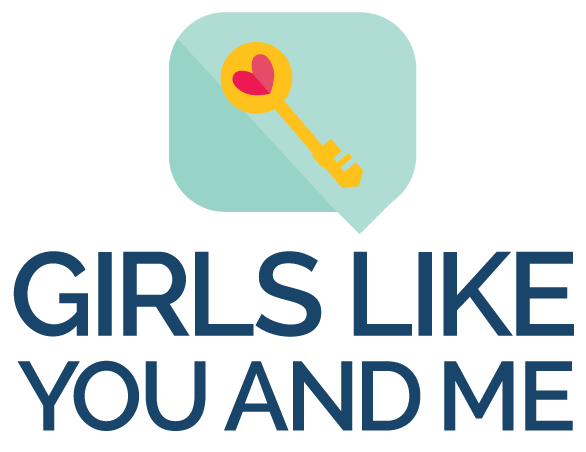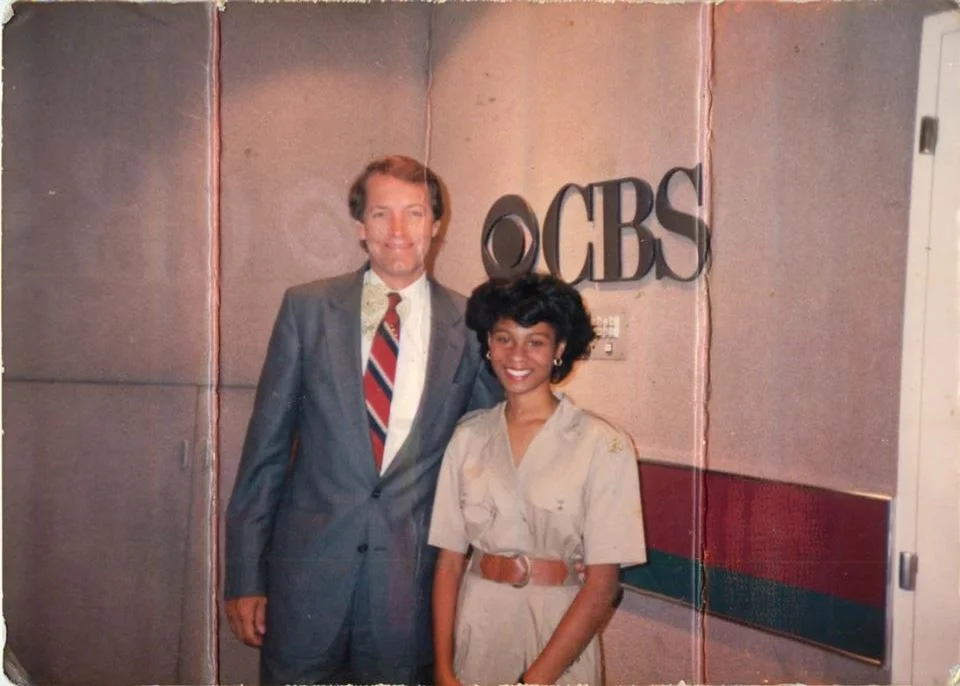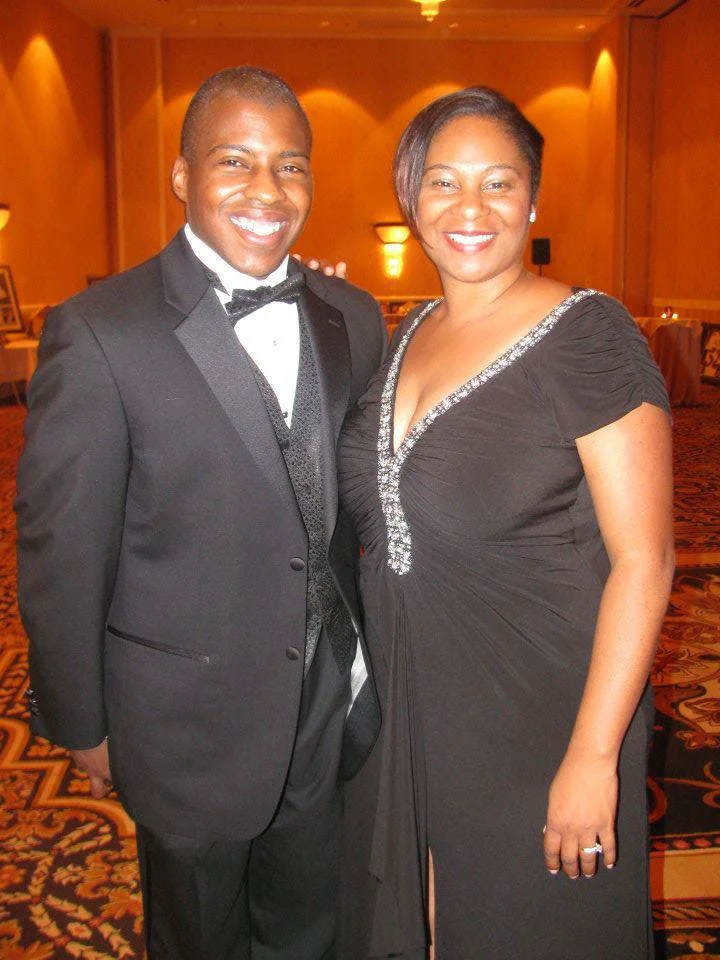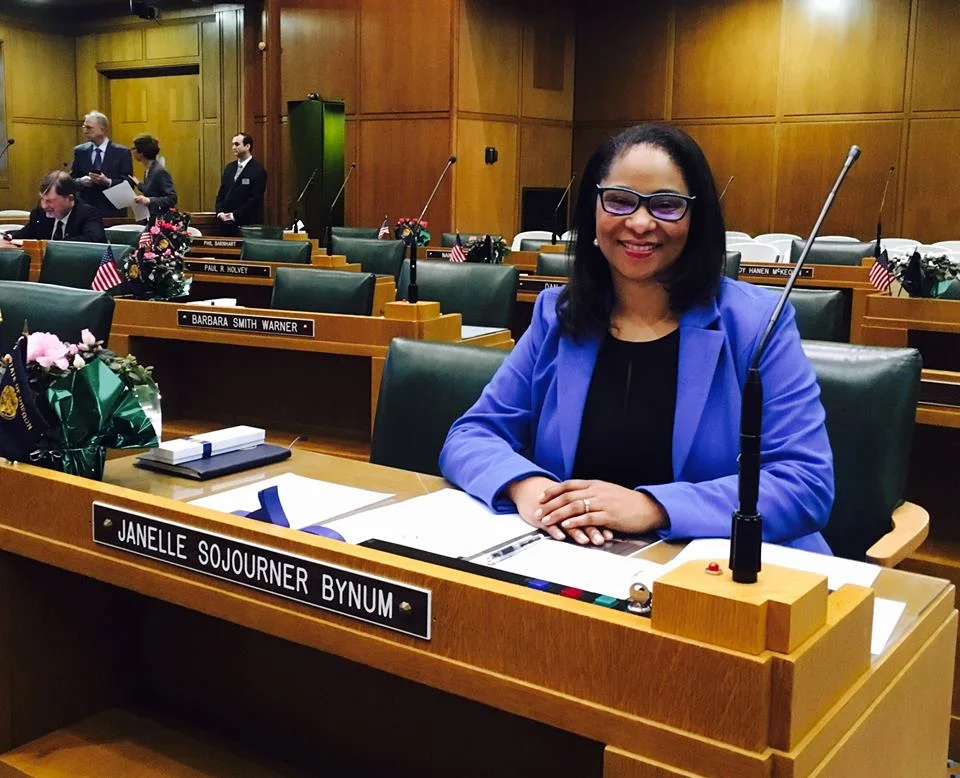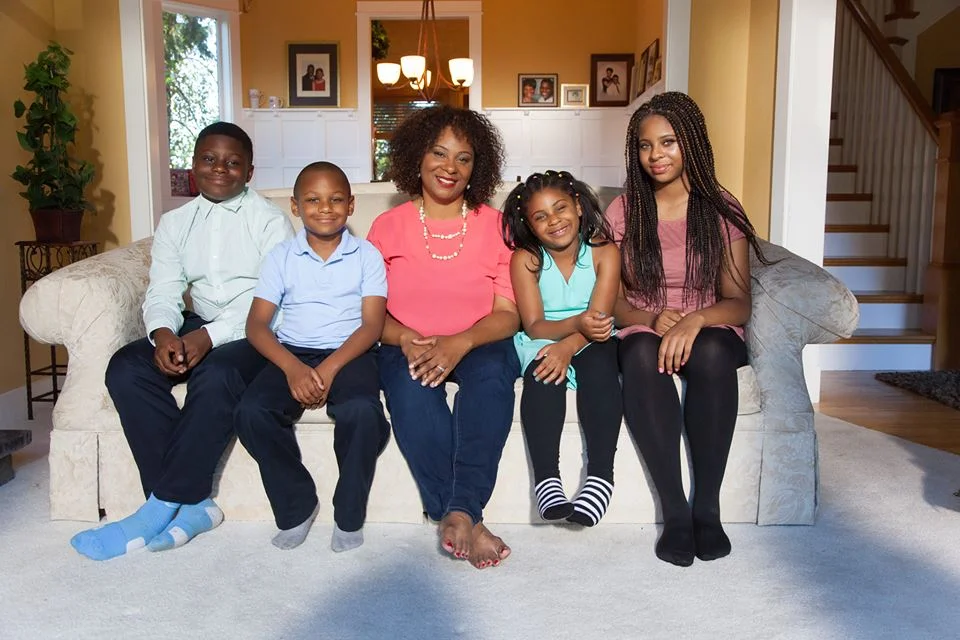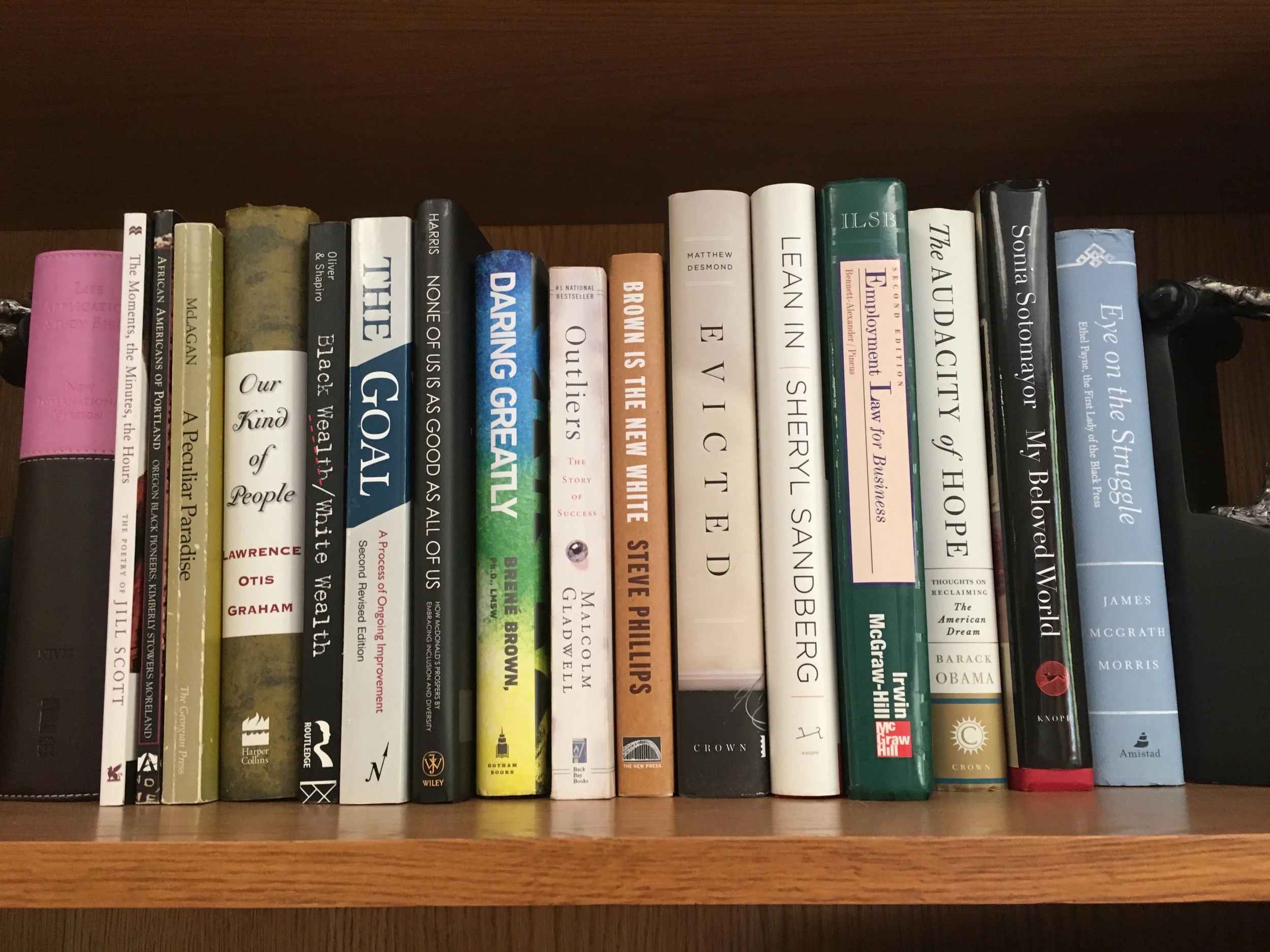State Representative Janelle Bynum is passing opportunity On
Janelle Bynum is already on her third career. A childhood interest in engineering led to a college scholarship to study electrical engineering. After working at GM and getting an MBA, Janelle switched gears and moved to Oregon to run four McDonald's restaurants with her husband. Janelle was inspired to run for state representative by her passion for quality education, where she now represents metropolitan Portland. Her advice to anyone running for office? "Know your why."
Janelle's 5th grade school picture
FAST FACTS ABOUT Janelle
Where she’s from: Washington, D.C.
Grew up with: mother, father, two younger brothers
Education: Bachelor’s degree in electrical engineering from Florida A&M, MBA from University of Michigan
Where she lives now: Happy Valley, Oregon
Growing up she wanted to be: CEO of a large corporation
Now she’s: a Representative in the Oregon State Legislature
Tell us about yourself growing up!
I was pretty studious, kind of square. I was obedient. I was the oldest of three, and my brothers were very active and so I was kind of the kid that didn’t get a lot of attention so I read a lot. I actually had a pre-teen interest in politics. My parents were into it. DC is like that. We had a very strong local political scene and a thriving black middle class.
My parents were teachers and they always knew about these programs that were being offered. There was a book of summer activities that would come out around March. So we always had really well thought out summer activities and weekend activities. We didn’t do a lot of sports but we always did academic things.
I used to go to engineering classes on Saturdays, and they were specifically targeted to helping minority kids pursue careers in engineering. Through that, I started taking internships that were engineering-based, and joined a summer program at the Naval Research Lab and we were doing research in the semiconductor processing arena. From there I chose to be an electrical engineer. I thought I was going to go to Japan and work at Sony and be some acoustical person or something. I ended up getting a scholarship and working at Boeing.
Janelle with Charlie Rose. She says, "Me with Charlie Rose before going on air. He interviewed me as a result of winning a speech competition. My mom let me borrow her dress.
Why did you go to boarding school?
I found myself going to my local high school. I was doing really well but I didn’t feel challenged. I told my parents that I wanted to go to private school and so my dad took me over to this school fair called the Black Student Fund. They had a school fair for all the known private schools, and that was a recruitment area for minority students, or African-Americans. We ended up applying to Madeira, and when we did the family visit at Madeira I really enjoyed it.
What was it like going to Florida A & M, a historically black university?
It was amazing. Those schools were born out of one of the deeper, darker times in our history but what they provide speaks to the determination and tenacity of the African-American. It’s a very beautiful community of young black scholars and the band is the most exciting part. You go to the football games not to watch football but to hear the band. The other thing that’s different is that the dorms are single sex and there’s no visitation. It’s very conservative. The expectation is that you will finish. They’re very exciting, vibrant places and at the time that my school had the highest number of African-American national merit scholars in the country. It’s a big deal.
What did your scholarship from Boeing involve?
They paid me to go to college and along with the scholarship came four summers of an internship. I thought I was going to go to GM when I graduated from college to do programming of vehicle technology, like onboard computers, but I ended up going to product engineering and then I did supplier quality engineering. I really enjoyed that, so I did electrical engineering.
After college, you were working as an engineer at General Motors and you got an MBA. Did you do that full time or while you were working?
Growing up my mom was going to grad school a large portion of my life, and I decided that I didn’t want to go to grad school while my kids were growing up. I decided that I’d work for two years and I would go back to grad school. I read this book What They Don’t Teach You in Harvard Business School, and I fell in love with its concepts, so I applied to business school. General Motors had a fellowship that would pay for you to go full time, earn half your salary, get all your benefits, and then you come back to be one of their fellows. That was the program that I did. It was amazing because I came out with virtually no debt.
Janelle with her husband. Together, they operate four McDonald's locations.
How did you transition from engineer in Michigan to McDonald’s franchise owner in Oregon?
I graduated in 2000 and then I ended up leaving in 2002 because we were pregnant with our first child and September 11 hit. I had a global job. I happened to be in Taiwan when the towers fell, and I was stuck there for a week. I was pregnant. It was a nightmare, and I knew I couldn’t do that job anymore. I first started looking internally for another job. My mother-in-law is a McDonald’s owner, and she told my husband that she was going to retire soon. If he wanted to take over the business then she would sell it to him, so we decided to pack up our home, and sell our house, and leave our jobs and go work for her.
Tell us about being a McDonald’s franchisee.
We have four [restaurants]. Three of them are on one big commercial street and then one is in a small town. McDonald’s requires that you live in the neighborhood of where your stores are. We live ten minutes away from the stores in any one direction.
McDonald’s is an incredible business model that is very mature. We joined during a time where it was going through a downward cycle. It was pretty exciting, because it is always an innovator, but you’re with a big team of people. Being a franchisee is like a hybrid business model. To some extent you’re independent, but you’re also dependent on the entire system.
You’re responsible for the operation, so we always have a store manager but the owner/operator is responsible for the compliance part. Whether it’s HR compliance, environmental compliance, governmental compliance, overall strategy, pricing, things as simple as what uniforms you want people to wear. It’s a much broader view.
Janelle and one of her employees, a recent high school grad who was awarded a scholarship from McDonald's.
What has it been like running a business with your husband? How did you divide responsibilities and balance work and home life?
It’s hard. Now that I’ve stepped away to do this job during the legislative season, it became very apparent what my usefulness in the organization was, whereas I’m not sure it was fully appreciated before that.
I am really good at compartmentalizing roles, so during the day we would talk about work and my husband would deal with the maintenance, the operations. I would deal with the business parts so the bills, the taxes, the compliance. He did the pricing. There was always a very bright line in terms of what our roles and responsibilities were. We bought our stores from his mother and working in a broader family business is really, really hard. There are times when we would talk about business at the Thanksgiving table. A lot of funny things happen at McDonald's, so it’s worth a good laugh over dinner. It’s a family affair. It can be awkward sometimes but the principle that I try to keep at heart is that my family comes first. There’s no amount of money that I would take for losing my relationship with my family.
I knew that if I outworked her then I could win- but I had to work smart
It sounds like you really get to know your community living there and owning businesses there. What prompted you to run for office?
There were a couple reasons. Number one, I’ve always been very passionate about education and access to education, the quality of education. Because we’re hiring teenagers from the community, we can see what was happening in the high schools. Because our kids were attending public schools, I could see from a public policy standpoint, how that was impacting our workforce.
And there was a need from a policy standpoint to incorporate the interests of small businesses into our lawmaking. I’m a democrat and it’s really hard for my party, I think, to make good laws for the state if there’s no small business input into the party platform, so we really needed that.
I’ve served on the school board’s equity committee, so my experience was really in the educational arena. I don’t think they were ready for my level of activism and how passionately I cared about our students of color, and how I was going to push and point out inequities and demand that they be addressed.
I filed to run on the very last day, and I hit the ground running. I knew I was running against a pretty solid competitor. She’s the mayor of my city, and she was going to be well funded. She had 12 years of governmental experience, so it was going to be an uphill battle. I inherited a tremendous work ethic from my mother. I knew that if I outworked her then I could win- but I had to work smart. I had to fundraise, I had to canvass, and I had to have message discipline. Whatever my message was, I had to speak to it and not stray.
What people want to pass on to their children is a better life than what they had
What was your message?
My message was “passing opportunity on.” It spoke to the value of education, and it spoke to my career as a business owner. We talked about how my grandmother was a hotel maid. She worked so that she could put my father through college. He became a teacher. I attended college and became an engineer and now I’m a small business owner. It was this story of progression through education. What people want to pass on to their children is a better life than what they had. That was the message.
Were you prepared for how much money you were going to need to raise for your campaign?
I was in some sense. I saw a new number today that campaigning was $1.9 million, which is pretty scary to see. Oregon has unlimited contributions, and it has extreme transparency. You can accept money from any entity. Because of that, the races tend to be a little more expensive. But there’re not many races in the state that are competitive. They’re solidly Democratic or solidly Republican. There are about five or six state races that are competitive. We’re not spending unreasonable amounts in other races; they all tend to pour into these five or six competitive swing races.
How did you prepare to be an effective candidate?
As an African-American in a corporate setting, an academic setting, you always have to be at the top of your game. That was probably the most formal informal training that I had. I attended one campaign school. I worked in the legislature for the representative who held the seat before me. Then the co-curriculum [Madeira’s Capitol Hill internship program] was also a factor. I remember learning that what we thought was happening in Congress was completely different than what was actually happening, so I had a realistic view of what was at stake and what needed to happen.
Janelle at her seat in the state legislature
You won your election and took your seat in January. What do you do day to day when you’re in session?
It can be summed up very simply as speed dating. It’s talking with lobbyists, and talking with activists, and talking with constituents. I do 15-minute appointments. They have to bring me up to speed and move to a position in that time period. I find out where my values lie, and I find out what kind of pushes my buttons. Internally you’re saying, “I really want to support this. I really want to help this cause.” Or, “Over my dead body will this get through.” Or you’re saying, “I don’t even have an opinion on this, but because someone else feels passionately about it, I’ll support it.”
I think that some truths are universal. People want their children to do better than they did. They want to be treated fairly,
What are you working on right now?
Right now we’re having a big discussion on our budget. What we want to spend and what we have to spend don’t match, so it’s a very interesting exercise in how we fund our priorities. It’s been good to be in the room to talk about the reality of small businesses and to talk about what my profit and loss statement looks like, and explain it to my colleagues. It’s also good to focus on the lives of my constituents. Their economic situation ranges from dire to very, very, affluent. I have East Portland and then I have four other areas: Damascus, Gresham, Boring, North Clackamas, and the City of Happy Valley, so I have the poorest part of Portland and the richest city in the state.
I think that some truths are universal. People want their children to do better than they did. They want to be treated fairly, and they want to be able to take a vacation and save for retirement and drive a car that works. There are a lot of minority kids who need someone to push for those types of policies that would really help them. What lifts minority kids lifts everyone, likewise women’s issues. I’m a staunch feminist and I say what’s good for women is good for everyone.
Does being a younger person and a parent of young children inform your work?
It’s funny how forty all of a sudden feels young when you go to the State House. I think it is so important to have people who put kids on a school bus or kids who have to walk to school each day. I think it’s so important to have those voices in our government. We talk about trying to help families, people in everyday America. As a mom with little kids a lot of those issues are front and center for me, whether it’s childcare, whether it’s reproductive health, whether it’s equal pay, or even something as simple as drivers licenses. We had a discussion about impaired driving. We were trying to get the language right on a law. I reminded my colleagues that I have a new driver in my family and if she couldn’t understand the law it’s too complicated. I don’t think people realize that we have 16-year-olds driving, and so we need to make laws they can understand. I think that’s why it’s important for us to have young women in our legislature, in our law-making bodies.
Janelle and her kids
You have four kids, and politics is often a family affair. How does your family support your political career?
If I can leave one impression it’s that I think for a mom who can have any career, she needs to have a really strong support system. My husband and I have invested in childcare. If I didn’t have that I wouldn’t be able to be successful. My mother reminded me that my generation had become comfortable and all of the gains that her generation fought for were at risk and so the hour drive each way each day just represents a small token of discomfort for the cause and for my children. I think they’re okay, because they have a good life. Their sacrifice is putting up with their mom driving to Salem every day or going to some political event that I drag them to all the time. That’s their contribution.
What fills your time outside of work?
I really enjoy mall walking in the wintertime, and I enjoy taking cooking classes, so I took one yesterday on Asian noodles, and I like attending my kids’ sport events. There’s not a lot of time but those are the things I enjoy doing.
As a candidate, "Know your why"
What advice would you give someone who say wants to run for office?
Know your why, because there will be times when your faith is tested, your motivation will be tested and if you are very truthful to your why then it’ll propel you to stay in the race- even if you lose your first race. My why was really addressing my mother’s comment about getting too comfortable.
Did you have a vision for your life as an adult when you were growing up?
As a young woman I thought I would be CEO of a major corporation. On my desk at GM, I had the org chart, and I had taken a picture of myself and posted it over the face of the guy who was currently running General Motors. That’s still possible, but who’s to say what type of organization it will actually be? I’m getting there.
This interview has been edited and condensed.
Check out books Janelle loves!
